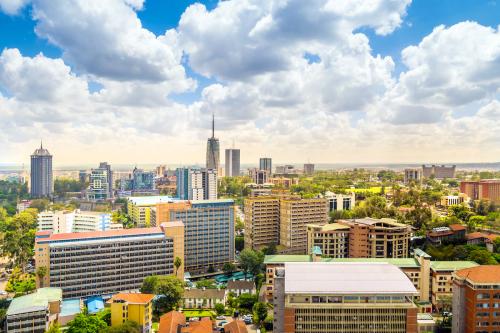This viewpoint is part of Foresight Africa 2024.
As Angola confronts the repercussions of economic headwinds, the pursuit of inclusive growth and sustainable development stands at a critical juncture.
In the face of economic headwinds, Angola finds itself at a moment of striving for inclusive growth and sustainable development, after critical global events impacted the country’s efforts to grow.
Angola’s economic landscape has been significantly affected by a confluence of factors, including external shocks on the oil price drop in 2014, driving the country into a 5-year economic recession since 2016, and the enduring effects of the COVID-19 pandemic from 2020 in such a way that the economy just started recovering gradually in 2021 with a growth rate of 1.2% of GDP. These headwinds disrupted the nation’s economic trajectory and also cast shadows on the inflation trajectory: The inflation rate reached 27% in December 2021, year-on-year, and subsequently fell to 16.5% in December 2023, year-on-year.13 The Government successfully implemented an extended financing program with IMF’s support that allowed macroeconomic stability to be restored; several structural reforms were also implemented leading to a stronger and more inclusive growth.
As African finance ministers grapple with the task of formulating policies, they face a delicate balance between addressing immediate challenges and building resilience for future shocks. In times of uncertainty, the government of Angola has been implementing measures to fight the adverse scenario with fiscal measures to increase the fiscal space and to actively manage the public debt, strengthening the independence of the central bank, the exchange rate regime, and the social protection system as well as a reserve to fight food insecurity and reconversion of informal economy.
On the fiscal policies, the government implemented several measures to improve and rationalize public expenditures, including limiting the purchase of nonessential goods and services, suspension of selected nonessential capital expenditures, adopting fuel subsidies reforms, and initiating a privatization program. To relieve the impact of these measures on the most vulnerable people, there were tax exemptions of value-added tax (VAT) and customs duties on goods imported under humanitarian aid and donations, VAT credit for imported capital goods and raw materials for producing essential consumption goods, and delayed payment option for social security contributions. Additionally, on the debt management side, the ratio of debt-to-GDP were elevated reaching higher than 120% at end of 2020, mostly due to significant currency depreciation. Currently, due to subdued growth, fiscal prudence and conservative financing policy, debt-to-GDP ratio is on a declining path, although some macroeconomic risks persist.
Furthermore, the country introduced better mechanisms to offset the impact of future shocks, such as Adaptive Social Protection. The Government of Angola has been implementing a money transfer (Kwenda Program), under the National Strengthening Social Protection Program of USD 420 million, of which USD 320 million is financed by the World Bank. To date, over a million families are registered in the Kwenda program and most families have already received direct money transfer from Kwenda. The Government is also taking measures to create conditions to reduce vulnerabilities of individuals and communities to shocks such natural disaster, economic downturns and health crises.
The government has been strongly focused on increasing the country’s productive capacity with the main objective of strengthening food security and has been implementing several measures to support and boost the private sector, especially focusing on the value chain of the food sector and agriculture. For 2024, the focus of the growth strategy is on food security; the 2024 state budget includes a package of policy measures to support economic growth through private investment.
In conclusion, as Angola confronts the repercussions of economic headwinds, the pursuit of inclusive growth and sustainable development stands at a critical juncture. The choices made in these turbulent times will not only determine the immediate fate of nations but will also shape the resilience of economies to future shocks, highlighting the essential role of strategic policymaking in charting a course towards a more sustainable and inclusive future.
The Brookings Institution is committed to quality, independence, and impact.
We are supported by a diverse array of funders. In line with our values and policies, each Brookings publication represents the sole views of its author(s).









Commentary
Angola: Navigating turbulent times and building resilience for future shocks
August 7, 2024